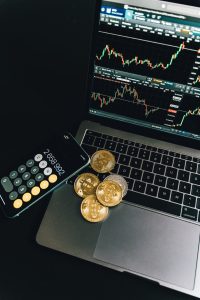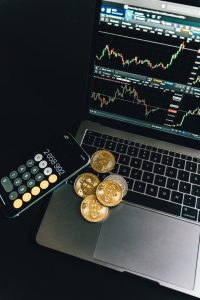
The Rise of Decentralized Autonomous Organizations (DAOs): Governance Without Borders
What is a DAO?
One of the fastest-growing concepts in blockchain and cryptocurrency is that of a Decentralized Autonomous Organization, better known as a DAO. It promises a radical revolution in how organizations handle governance.
Powered through blockchain technology, DAOs get rid of traditional centralized structures in favor of giving participants a say in decisions and operations. In this article, we will delve deep into what DAOs are, and explain how they work and their ability to reshape governance models across industries.
The Evolution of Governance: From Centralized to Decentralized
In simple terms, a DAO is an organization governed solely by smart contracts and blockchain protocols, with decisions determined by the aggregate contribution of its members.
Hence, a blockchain is used because no single entity dictates more control than another in this form of organization. Essentially, they are set through rules -a set of smart contracts in nature – that execute any decision autonomously, as long as those actions are agreed upon by the community.
Essentially, a DAO has no intermediaries or hierarchical leadership. It operates using open processes for voting, which allow members to proactively propose, vote and decide on issues of changes or distribution of funds. It creates a very truly decentralized self-management in this regard, whereby all participants have a say in its future – a quite democratic form of decision-making.
Key Features of DAOs: Decentralization, Transparency and Immutability
Conventional governance structures have been based on centralization, where a few individuals or organizations make up the authoritative core. In many cases, this has encouraged inefficiency, corruption and lack of accountability. On the contrary, DAOs represent decentralized governance – for decision-making that is threatened to spread widely within the participant network.
Governance has traditionally come in the form of formalized hierarchies, such as corporate boards or government entities. In recent years, blockchain technology has enabled decentralized systems that step around such traditional structures. Since DAOs use smart contracts to automate processes, transparency is ensured and fraud or manipulation is at a minimum or non-existent.
In the wake of growing interest in DAOs, proof has begun to emerge of how more transparent and fair decentralized governance can be. For example, many DeFi projects are DAOs that let their users vote on measures such as the setting of interest rates, lending policies, or the addition of new assets.
Still, other areas taking up the use of DAOs include gaming, art and even philanthropy – those for whom the processes of decentralized decision-making fit particularly well. While the emergence of the DAOs does bring a new model of governance, much is still to be overcome in terms of how the decentralized decision-making mechanisms would fit into other systems. In sum, DAO models will have to ensure recognition under the law, address several security concerns and provide for scalability before they become mainstream.
The best crypto wallet and other similar tools have made the whole process of participating in a DAO much easier and further secure since they can hold the required tokens, vote on proposals and even interact with blockchain networks. All this makes these organizations even more reachable.
How DAOs Work: Blockchain Technology and Smart Contracts
Consequently, the typical features of DAOs include decentralization, transparency and immutability directly encapsulated in blockchain technology. It is for this reason that DAOs are different from traditional organizations based on these grounds and provide a basis for governance models.
Decentralization essentially denotes this DAO. While top-down centralisms are common in most entities, DAOs are run by a network of participants rather than any single controlling authority. This decentralization cuts down on the risk of corruption while making things more inclusive since decisional de facto would remain with all stakeholders, many times dependent on which tokens they own.
Another important feature of DAO pertains to transparency. All actions and decisions, since recorded on the blockchain, are thus sourced for viewing by participants. This ensures accountability, too, as members will find it easy to trace how decisions were made, or how funds were apportioned. Such levels of transparency contrast with those in which financials and decision-making processes under traditional organizations are hidden from view.
Immutability is the inherent ability of blockchain to prevent changes in data once it gets recorded. In the case of a DAO, this means that when a decision gets to the point of execution via smart contracts, it cannot be changed or tampered with. This feature builds a certain level of trust among the participants of a DAO: one can be sure that decisions will be executed just the way they are supposed to be.
These key features of DAOs provide a foundation for creating more efficient, secure and equitable governance models that could have great impacts across a wide range of industries.
Governance Models in DAOs: Token-Based Voting and Beyond
The interaction of blockchain technology and smart contracts is how a DAO works. The blockchain serves as an immutable ledger of transactions and decisions, while the smart contract is a self-executing program that enforces adherence to rules and a decision-making process of the organization.
Therefore, smart contracts are incredibly important in the functioning of DAOs, removing the need for intermediaries.
After a proposal is created and put to vote, smart contracts will automatically give effect to the decision without the need for intervention, while the process will also be quick, secure and very transparent. Suppose, in this case, a proposal has been approved to apportion certain funds to specific projects; the smart contract in this regard would automatically trigger the release of said funds without anything being done by some kind of central authority.
Most of them are built on and hosted by blockchain networks such as Ethereum because these blockchains support dApp development and smart contract deployment. In DAOs, tokens are one more popular means of showing ownership and voting rights; token holders can participate in DAO governance by voting.
Since these technologies are decentralized, the DAOs could operate independently of institutional structures. It’s opening up all these new business models and ways in which people can self-govern and work together from their bedrooms across the world without essentially being tied by a geographical boundary or controlled hierarchy.
Governance inside a DAO usually happens through some kind of token-based voting mechanism, where the participants have tokens that represent their voting power. The more tokens one has, the stronger this participant’s influence is on decisions made within the DAO. The distribution of tokens may be dependent on contribution, investment, or other forms of community involvement.
Token-based voting allows a democratic decision-making process wherein the proposals put to the community are voted upon and automatically executed by smart contracts. This model also incentivizes active participation and even better aligns the community’s interests with the success of the organization. At the same time, concerns of power concentration and unequal distribution arise, as privileged decisional positions are held by large token holders.
Some have tried to adopt new, innovative governance models that work around these issues. For example, some of them use quadratic voting – a system designed to empower the voting power of smaller token holders by weakening the power of large holders. Others rely on systems based on reputation, wherein voting rights do not depend on the tokens but rather take into consideration the participant’s history of vital contributions to the DAO.
With the evolution of DAOs, new models could be expected to emerge and further refine how decentralized decision-making can be achieved. Current models still face issues related to voter apathy, low participation rates and the grim realities of managing large-scale decentralized communities.
DAOs are a fundamental shift in how organizations practice governance. In so doing with no central authority, DAOs indeed embody simply an alternative way of governance, superior in every count-inclusiveness, security and efficiency. And yes, many challenges exist, such as legal recognition and scalability. Yet, the rise of DAOs continues to unfold a new history of borderless governance. As technology continues to mature in the future and its adoption does too, one could imagine DAOs someday being a plank of decision-making globally, even from outside crypto.

